One of the many benefits of homeownership is that your home is an asset you can tap into when needed. If you’ve owned your Charlotte-area home for a time, you may have built equity—the difference between the current value of the home and what you still owe on your mortgage.
You can access this equity by selling the home for more than you paid for it. But you can also use the equity you’ve gained, without selling, by choosing a cash-out refinance or a home equity loan/line of credit (HELOC). Learn the difference between these two options and how to decide which is best for your situation.
What is a cash-out refinance?
A cash-out refinance replaces your existing mortgage with a new mortgage, just like any refinance. But instead of getting a loan for the current mortgage amount, your new loan amount also includes the value of the equity you’ve gained. You receive this difference in cash at closing. You can then use the cash to pay down debt, cover college expenses, finance a wedding—whatever you need.
For homeowners in Charlotte, a refinance can be a great way to regain control of your finances and adjust your cash flow.
Benefits of a Cash-Out Refinance:
- Access to a large amount of cash
- May qualify for a lower interest rate than with a home equity loan or HELOC
- May be able to improve your credit score if you use the loan to consolidate high-interest debt
Drawbacks of a Cash-Out Refinance:
- Closing costs and fees add to what you owe
- Taking on a new mortgage extends the time it takes to pay off your home
- Your interest rate may be higher if you have a low credit score
What is a home equity loan?
With a home equity loan, you keep your current mortgage as is and take out an additional loan that uses the equity in your home as collateral. This loan delivers you a lump sum of cash, which you can use as needed. You’ll then make regular payments on the home equity loan, in addition to your regular mortgage payments.
Benefits of a home equity loan:
- You can access cash without refinancing your existing mortgage
- Interest rates may be lower than other types of loans, such as personal loans
- You may be able to deduct the interest you pay on your taxes
Drawbacks of a home equity loan:
- If your credit score is low, your interest rate may be higher
- You’ll pay closing costs and fees, which add to your costs
- Using your home as collateral means you could lose your house if you default
How to choose between a cash-out refi and a home equity loan
When you’re trying to decide between a cash-out refinance and a home equity loan for your Charlotte home, there are a few key categories to compare.
- Interest rates and fees: Comparing interest rates won’t be apples-to-apples unless the terms are the same. Your annual percentage rate (APR) tells you how much the loan will cost each year, including interest and fees. Be sure to compare the costs of all fees involved for each option, including origination fees, closing costs, prepayment penalties, and other fees.
- Loan amount and terms: How much do you need to borrow, and is that amount an option with the loan you are considering? Cash-out refinances may be better if you need a larger amount of money.
- Loan-to-value ratio (LTV): Typically, you’ll be able to borrow up to 80% of your home’s value, meaning you’ll need at least 20% equity. For example, if your home is worth $400,000, you’d need at least $80,000 difference between the value of the home and the total loan amount.
- Tax implications: Think ahead to tax time – if you itemize taxes, being able to write off your mortgage interest could be useful. You won’t be able to write off the interest of a home equity loan, but you could if you refinanced your mortgage.
- Timeframe for receiving funds: How quickly do you need the money? As with a regular mortgage, it can take time to close on a refinance. You may be able to get the funds quicker with a home equity loan.
Keep our Mortgage Calculator handy so that you can run the numbers for each choice.
Cash-out refinance vs. home equity loan: which one is right for you?
When deciding between a cash-out refinance and a home equity loan, consider the following:
- How much cash do you need?
- What is your credit score?
- How quickly do you need the cash?
- What are the fees and closing costs?
- What are the tax implications?
If you need a large amount of cash, have a good credit score, and can afford the closing costs, a cash-out refinance may be the right option for you.
If you need a smaller amount of cash and have a lower credit score, a home equity loan may be the better option.
Also keep in mind your future plans. Do you expect to stay in Charlotte for the next few years, or do you expect to sell your home? Will you use the funds to improve or upgrade your home, which will increase its value (we can tell you the best improvements for Charlotte homes)?
Final thoughts
When it’s time to make big financial decisions, especially regarding your home and mortgage, it can be tough to know the best option. That’s why it’s so important to find a mortgage lender you can trust, and to look at your current finances as well as your future plans when making your decision.
The mortgage planners at Fairway Mortgage of the Carolinas are experts in Charlotte mortgages and refinances, and we understand how important it is to get it right. We’re dedicated to making the mortgage process friendly and comfortable for every customer.
Give us a call or get started online to connect with someone who can help you find the right loan for your needs. We guarantee we’ll get you to the closing table, so you can move on with the next big thing life has to offer.








